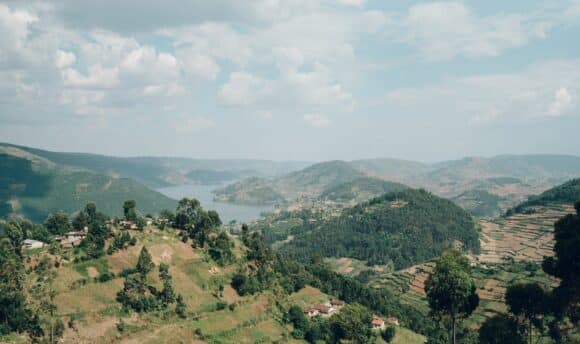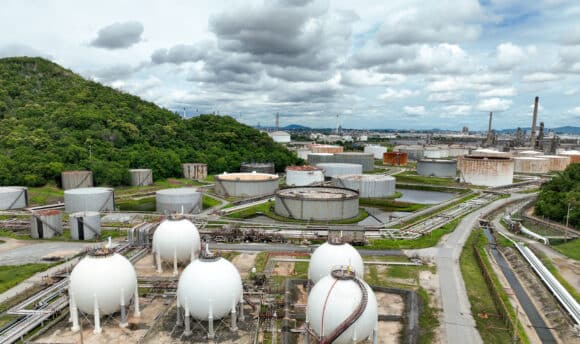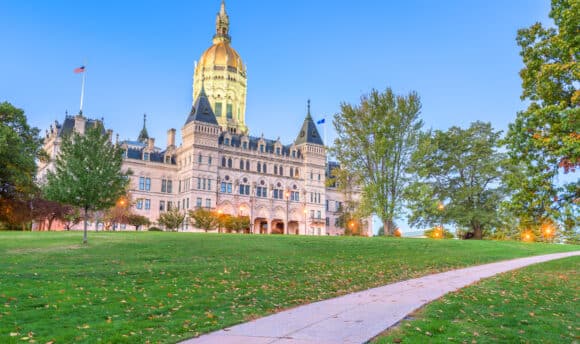FAIRBANKS, AK – An update to the Gwich’in Steering Committee (GSC) insurance industry scorecard released today reports 20 insurers now have a policy that protects Iizhik Gwats’an Gwandaii Goodlit (“The Sacred Place Where Life Begins”) from oil and gas development. The scorecard tracks global insurance companies’ policies on fossil fuel development in the coastal plain of the Arctic National Wildlife Refuge – land sacred to the Gwich’in and the birthing ground of the Porcupine Caribou Herd.
With recent additions including Chubb, the first U.S. insurance company with explicit policy to protect the Arctic Refuge, the number of companies with a protective policy has more than tripled since the GSC released its initial scorecard in August 2021. This is in part because “high-risk drilling in the remote Arctic and on sacred land is a recipe for failure for companies that value the health of our climate and the rights of Indigenous Peoples,” according to the report.
Several companies highlighted in the scorecard have made some progress to consider the Arctic broadly but lack explicit policy to protect the Arctic Refuge, including AIG and Travelers. Among the bottom seven companies – which are all American insurers – American Financial Group, CNA, Liberty Mutual, Markel, RLI, and WR Berkley have not responded to GSC outreach, and The Hartford refused a request to meet with the GSC and has no public statements involving the Arctic Refuge.
“This latest update to our insurance scorecard demonstrates the growing need for companies to realize the impacts of climate change on their business and to consider the rights and wellbeing of Indigenous Peoples when underwriting development that harms our families, animals, and the resources we depend on to survive,” said Bernadette Demientieff, Executive Director of the GSC. “Fossil fuel development in the Arctic worsens the devastation from climate change that the Gwich’in and others in the region are already facing. We provide this scorecard to help all companies to commit to protect the health, subsistence, and culture of the Gwich’in and all Indigenous Peoples who hold the land sacred. The Gwich’in will not allow the destruction of our animals and communities. We will always protect our sacred land and ways of life.”
Since 2020, the GSC has communicated with 34 insurance companies involved in oil and gas projects worldwide and analyzed the sustainability reports, climate pledges, annual reports, and environmental, social and governance standards of companies. The 20 insurers join 29 global financial institutions with protective policy, including every major U.S. and Canadian bank.
Engagements have encompassed letter writing, phone calls, and in-person presentations. The GSC was invited to speak on behalf of shareholders at Travelers’ annual meeting in 2023, asking the company “to respect the rights of the Gwich’in and protect the Arctic Refuge, so that we can continue to live and thrive off the land Creator blessed us with,” Demienieff said.
The Gwich’in comprise the northernmost Native Nation living in 15 small villages across Alaska and Canada. Since time immemorial, the Gwich’in have been stewards of these lands, which include the coastal plain in the Arctic National Wildlife Refuge. The 1.5 million-acre coastal plain is the calving ground of the Porcupine Caribou Herd. The Gwich’in people and other Indigenous communities depend on the herd to sustain their way of life, people, and culture.
The Gwich’in Steering Committee has been seeking permanent protections for the coastal plain since the 1980s using diverse strategies with a coalition of allies. After decades of bipartisan protection, the Trump administration opened the area to oil and gas leasing in 2017. Although leases were sold in 2021, all energy companies and legacy lease holders walked away from their leases in 2022. However, the coastal plain remains under threat until protections are reinstated. The Alaska Industrial Development and Export Authority (AIDEA), an Alaska state agency still holds leases, and the 2017 Tax and Jobs Act mandates a second lease sale to be held by 2024.
To learn more about the advocacy work and campaigns engaging financial institutions that the Gwich’in Steering Committee and allies have led, please visit ourarcticrefuge.org.



